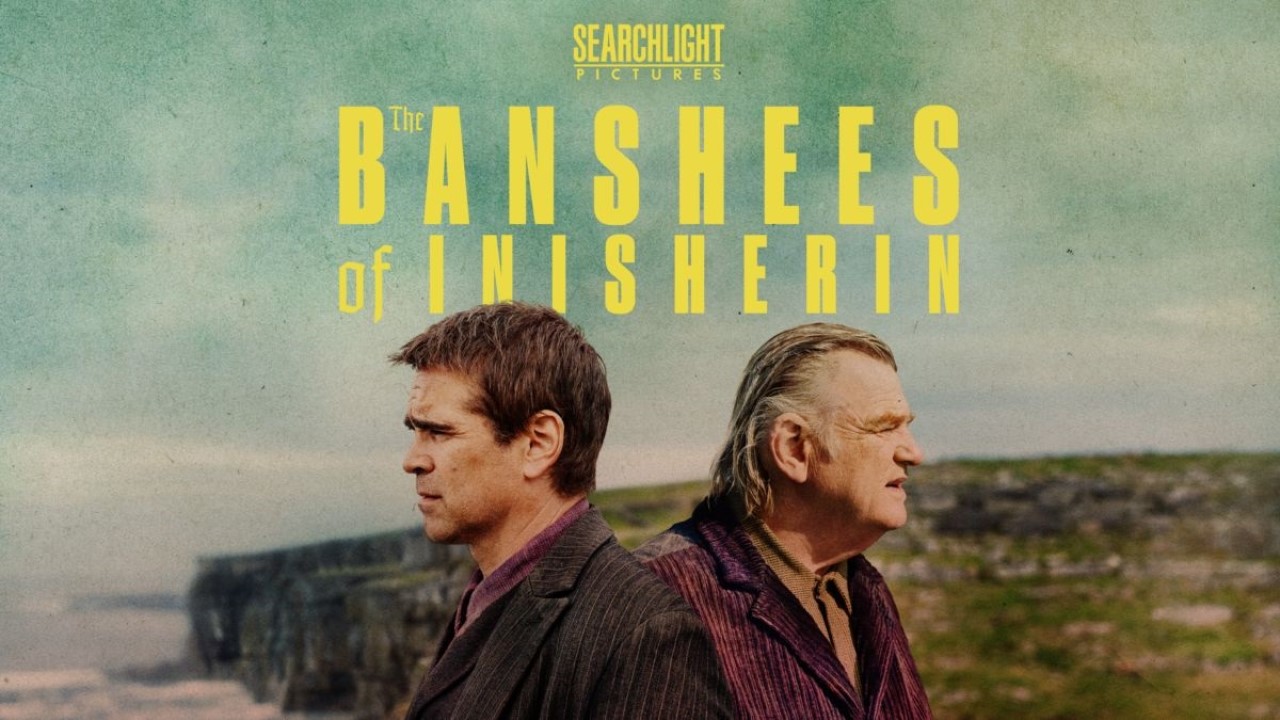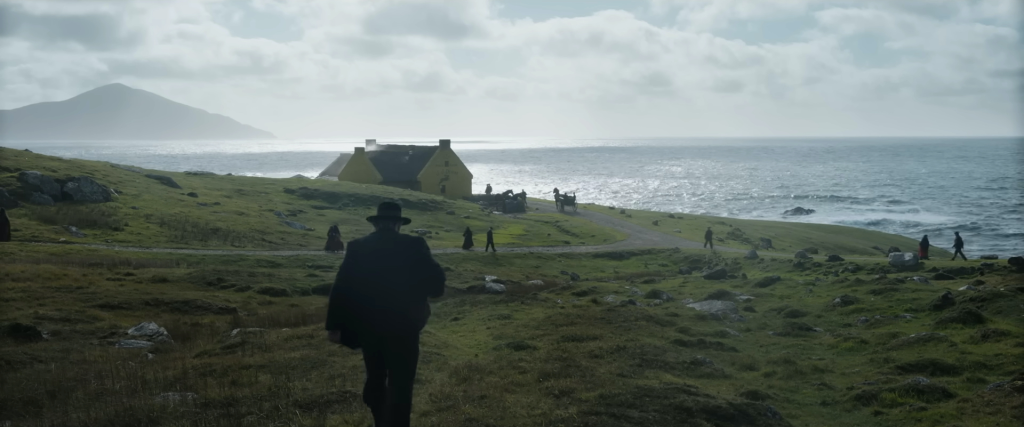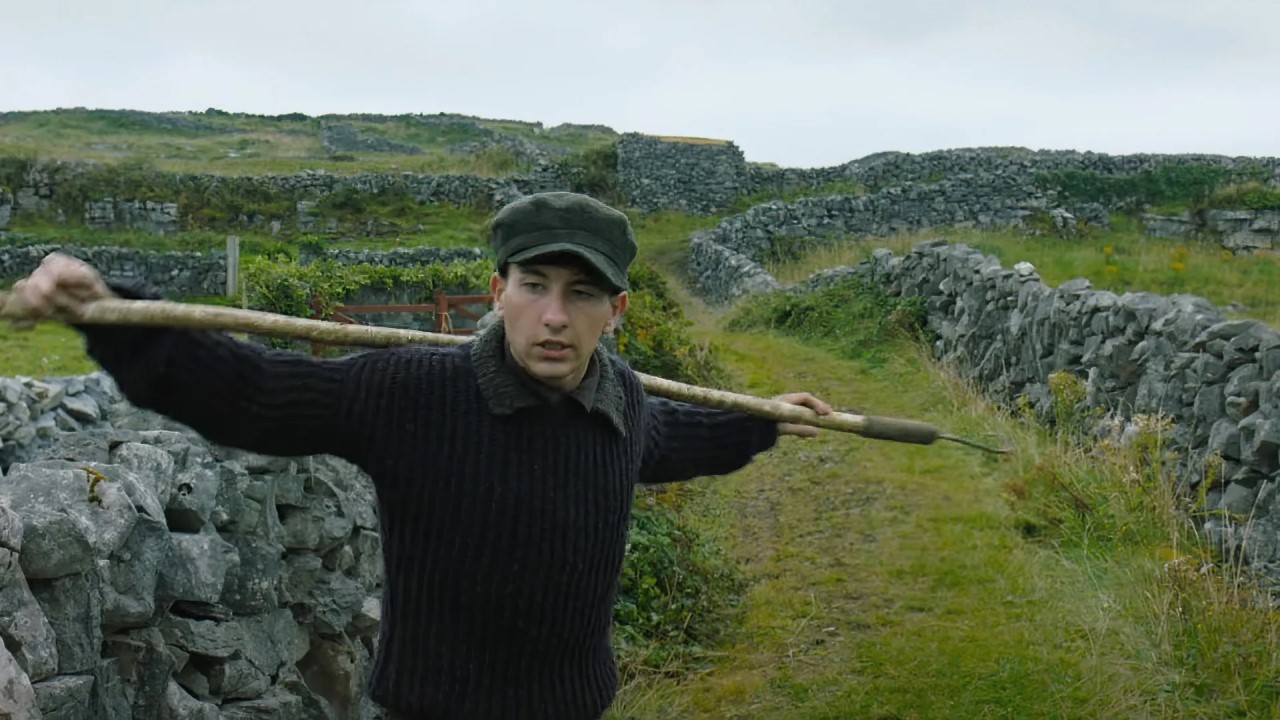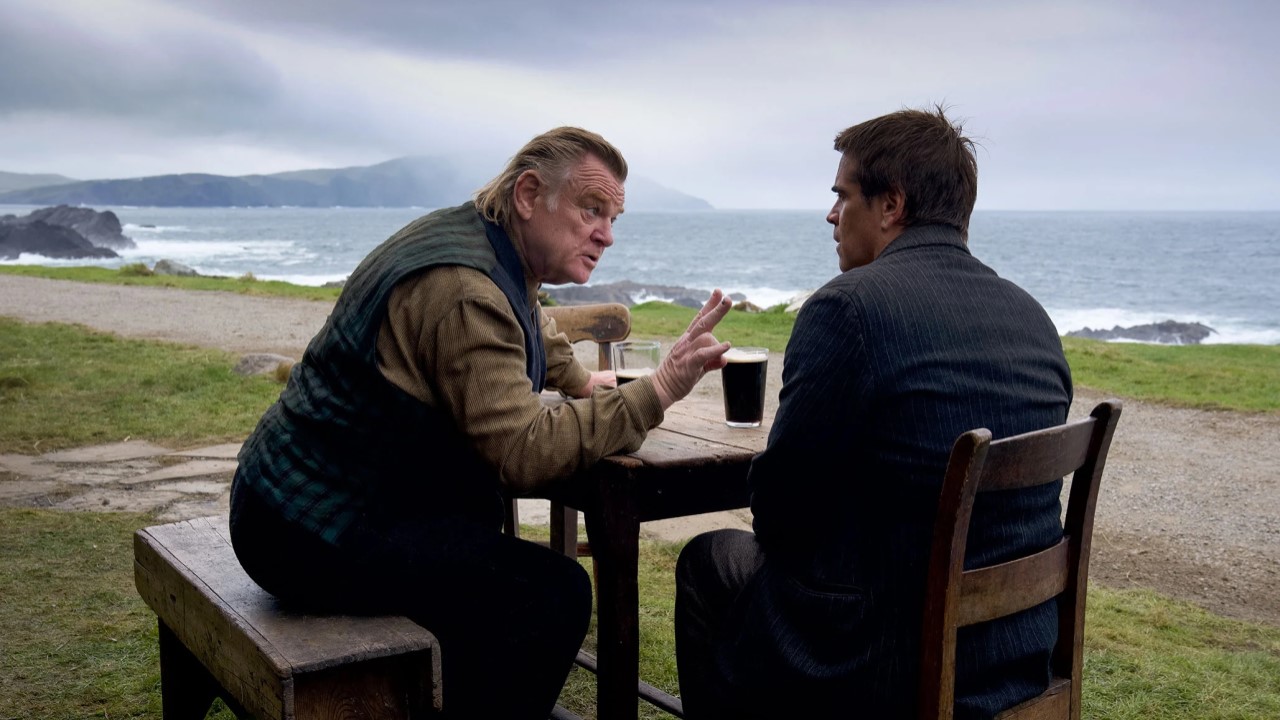The Banshees of Inisherin (2022)

The Banshees of Inisherin (2022), written and directed by Martin McDonagh, is a darkly comedic, emotionally resonant exploration of friendship, loneliness, and the human need for connection. Set on a small, remote island off the coast of Ireland in 1923, the film offers a haunting yet absurd portrayal of the fragile nature of relationships. McDonagh, known for his sharp wit and poignant storytelling, crafts a tale that is at once bleak and absurd, capturing the absurdity of life in a way that feels both deeply personal and universally relatable.
The film begins with the seemingly inexplicable fallout between two lifelong friends: Pádraic Súilleabháin (Colin Farrell) and Colm Doherty (Brendan Gleeson). Pádraic, a good-natured, simple man, is baffled when Colm suddenly ends their friendship without warning. Colm, a grizzled and introspective fiddler, tells Pádraic that he no longer wishes to waste his time with him. He has decided he needs to focus on more meaningful pursuits in his life, such as composing music and leaving behind the small, insignificant distractions that have defined his past, including his relationship with Pádraic. In a fit of frustration, Colm warns Pádraic that if he doesn’t leave him alone, he will begin cutting off one of his own fingers for each time Pádraic tries to speak to him.
This bizarre and chilling declaration sets the stage for a surreal and tragicomic conflict. As Pádraic struggles to comprehend the sudden rift and attempts to repair their friendship, the consequences of Colm’s drastic decision begin to unfold. Colm’s retreat into solitude and self-reflection sparks a chain of increasingly bizarre and tragic events, affecting not only Pádraic but also the island’s other residents. As the tension escalates, the characters’ lives become more entangled in their personal dramas, revealing deep existential questions about the purpose of life, the nature of human connection, and the inevitability of death.
Colin Farrell delivers one of his most memorable performances as Pádraic. He captures the innocence and vulnerability of a man who, though not particularly intelligent or worldly, is genuinely kind-hearted. Pádraic’s bewilderment and hurt at the end of his friendship are palpable, and Farrell’s portrayal of his character’s emotional journey is both tender and heartbreaking. Pádraic’s persistence in trying to mend the rift, despite the increasingly severe consequences, evokes a sense of tragic comedy—a man too simple to understand the depths of the situation but too earnest to abandon his hope for reconciliation.
Brendan Gleeson, as Colm, offers a stark contrast to Pádraic. Colm is a man of principle and stubborn resolve, seeking to find meaning and beauty in his waning years, even at the cost of alienating those around him. Gleeson brings a quiet intensity to the role, imbuing Colm with a kind of melancholy wisdom that makes him both sympathetic and infuriating. His character’s decision to sever ties with Pádraic and take extreme measures in the process is both cruel and deeply philosophical, suggesting that sometimes the pursuit of personal fulfillment can come at the expense of human connection.
The performances of the supporting cast are equally remarkable. Kerry Condon, as Pádraic’s sister Siobhán, offers a grounded and nuanced portrayal of a woman caught between the island’s absurdities and her own yearning for a life beyond the confines of her small world. Barry Keoghan, as the local simpleton Dominic, provides both comic relief and a disturbing presence, highlighting the bleakness of the island and its people’s isolation. His performance adds an unsettling layer to the film, making the island feel like a place of stagnation and entrapment.
The film’s cinematography, by Ben Davis, is visually striking, capturing the isolated beauty of the Irish countryside. The stark, windswept landscapes reflect the emotional desolation of the characters, with wide shots of the rugged terrain conveying a sense of isolation and confinement. The film’s muted color palette further enhances the feeling of bleakness, while also highlighting the moments of warmth and human connection that occasionally break through the film’s otherwise oppressive tone.
The score, composed by Carter Burwell, is haunting and evocative, blending traditional Irish folk music with melancholic themes. The music reinforces the film’s themes of loss, longing, and the passage of time, adding to the overall sense of existential reflection that pervades the narrative.
At its core, The Banshees of Inisherin is a meditation on the fragility of relationships and the pain of losing someone you love, whether through death, distance, or irreconcilable differences. The film explores the complexities of friendship and the ways in which people can become trapped in their own minds and habits. It raises questions about the nature of purpose and fulfillment in life, particularly as individuals age and reflect on the choices they’ve made. Colm’s decision to sever ties with Pádraic, no matter how extreme, is motivated by a desire to create something of lasting meaning before his time runs out. But in the process, he alienates the one person who cared for him most, highlighting the tension between self-actualization and human connection.
The absurdity of the situation, combined with the film’s dark humor, creates an atmosphere of tragic comedy that permeates the entire film. McDonagh’s script is filled with sharp, witty dialogue, but it also carries a sense of sadness and loss beneath the surface. As the characters’ actions grow increasingly irrational and desperate, the film offers a nuanced exploration of human behavior, showcasing the complexity of emotions that arise when people are faced with the inevitability of change.
The final act of the film is both heartbreaking and poignant, as the characters come to terms with the consequences of their choices. The conclusion, while not providing easy answers, offers a sense of resolution that feels earned, drawing on the film’s thematic exploration of human fragility, self-doubt, and the possibility of redemption.
The Banshees of Inisherin is a beautifully crafted, deeply emotional film that explores the nuances of human relationships with dark humor and existential reflection. With its remarkable performances, stunning visuals, and sharp writing, it’s a film that stays with you long after you’ve left the theater, inviting you to contemplate the delicate balance between personal fulfillment and the human need for connection.











